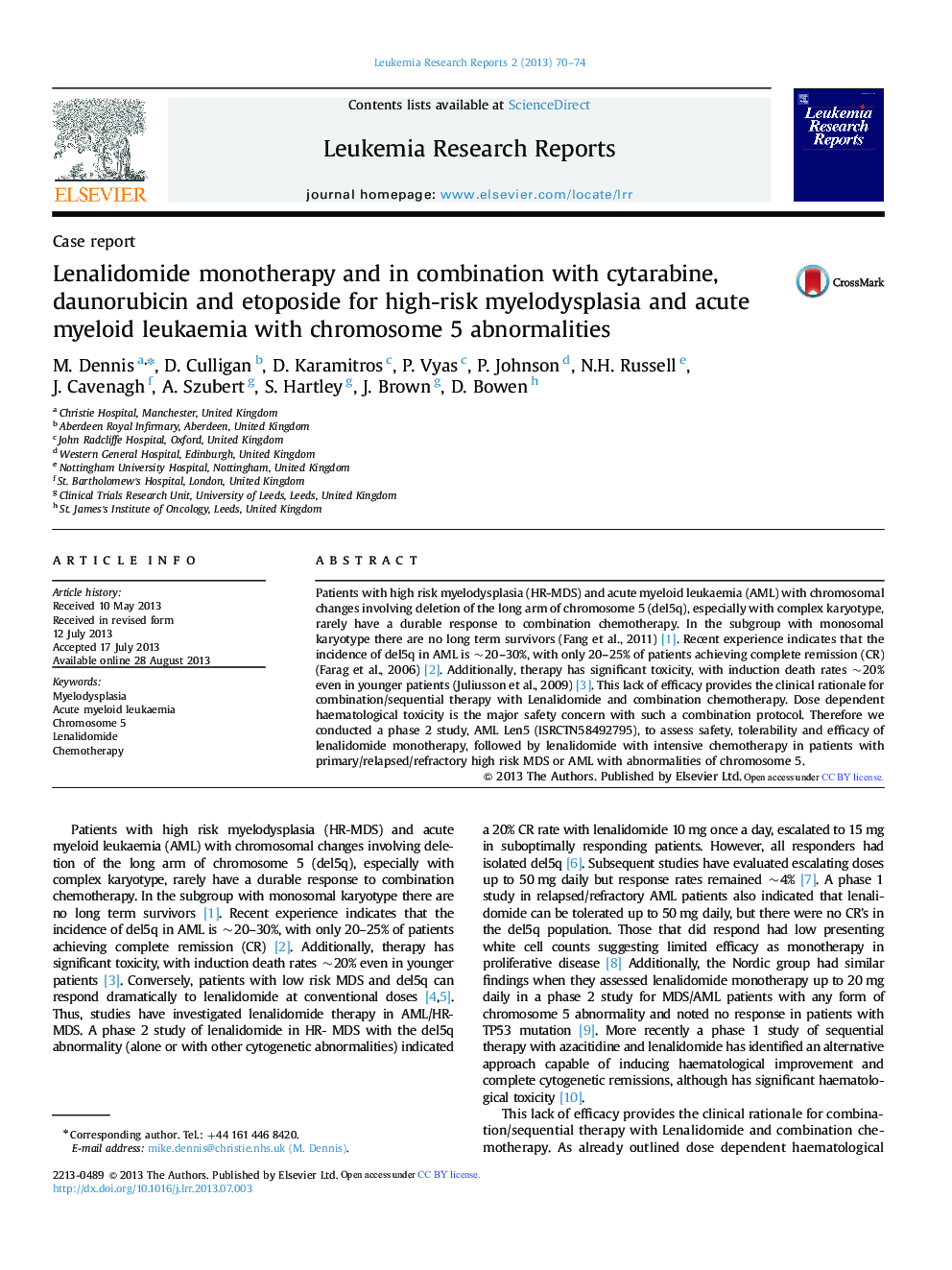| Article ID | Journal | Published Year | Pages | File Type |
|---|---|---|---|---|
| 2140340 | Leukemia Research Reports | 2013 | 5 Pages |
Patients with high risk myelodysplasia (HR-MDS) and acute myeloid leukaemia (AML) with chromosomal changes involving deletion of the long arm of chromosome 5 (del5q), especially with complex karyotype, rarely have a durable response to combination chemotherapy. In the subgroup with monosomal karyotype there are no long term survivors (Fang et al., 2011) [1]. Recent experience indicates that the incidence of del5q in AML is ~20–30%, with only 20–25% of patients achieving complete remission (CR) (Farag et al., 2006) [2]. Additionally, therapy has significant toxicity, with induction death rates ~20% even in younger patients (Juliusson et al., 2009) [3]. This lack of efficacy provides the clinical rationale for combination/sequential therapy with Lenalidomide and combination chemotherapy. Dose dependent haematological toxicity is the major safety concern with such a combination protocol. Therefore we conducted a phase 2 study, AML Len5 (ISRCTN58492795), to assess safety, tolerability and efficacy of lenalidomide monotherapy, followed by lenalidomide with intensive chemotherapy in patients with primary/relapsed/refractory high risk MDS or AML with abnormalities of chromosome 5.
